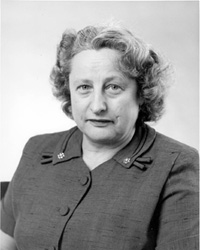Nutrition lecture jointly presented by ANSC and NFSC with the 'father of the microbiome’
Jeffrey I. Gordon, M.D., of Washington University
On Thursday, November 4, the 2021 Mary Shorb Lecture in Nutrition was jointly presented by the departments of Animal and Avian Sciences and Nutrition and Food Science with keynote presentation given by Jeffrey I. Gordon, M.D., who is known as the ‘father of the microbiome.’ His talk was entitled, “Development of gut Microbiota-directed foods for treating childhood malnutrition” in which he discussed an ongoing research project utilizing specific nutrients to encourage healthier gut microbe populations to combat malnutrition.
Dr. Gordon has spent his entire academic career at Washington University, first as a member of the Departments of Medicine and Biological Chemistry, then as Head of the Department of Molecular Biology and Pharmacology and since 2003 as founding Director of the University's interdepartmental, interdisciplinary Center for Genome Sciences and Systems Biology. His lab studies the biological effects of human gut microbial communities and focuses on addressing the global health challenges of obesity and childhood undernutrition through new understanding of the interactions between diets and promoting healthy development of the gut microbial community.
For Dr. Gordon’s lecture, he presented on a long-running research project on childhood malnutrition and gut microbiomes in Mirpur, Bangladesh. His lab began by examining how gut microbe development is affected by malnutrition–specifically the interactions and timing of development between specific microbe populations. They conducted a series of animal and child studies they found and confirmed the underdevelopment in key microbe populations due to malnutrition, which slowed growth and development. Then, they turned to development of food packages specifically designed to increase the microbe fitness in malnourished children through a nutrition program. Through regular feeding and testing, the researchers measured each group’s gut microbe populations with very positive results from one of their experimental nutrition mixes.
This year’s Mary Shorb Lecture in Nutrition was held via zoom and with the help of three ANSC faculty who served on the organizing committee, Drs. Younggeon Jin, Byung Kim and Mohamed Salem, which was chaired by Dr. Diana Obanda, NFSC.
 The Lecture series is named for Mary Shaw Shorb who received her B.S. in Biology from the College of Idaho (1928) and her Sc.D. in Immunology from Johns Hopkins University (1933). In 1942, she took her first research position at the Bureau of Home Economics and Human Nutrition of the USDA at Beltsville. Two years later, she transferred to the Bureau of Dairy Industry (USDA) where she was tasked with culturing Lactobacillus lactis Dorner (LDD), which was being used to make various fermented Dairy products. The media used to grow LDD required liver extract, which led Dr. Shorb to hypothesize that LDD could be used as a rapid biological assay to identify the anti-pernicious anemia factor identified in liver, for which Minot and Murphy shared the 1934 Nobel Prize in medicine.
The Lecture series is named for Mary Shaw Shorb who received her B.S. in Biology from the College of Idaho (1928) and her Sc.D. in Immunology from Johns Hopkins University (1933). In 1942, she took her first research position at the Bureau of Home Economics and Human Nutrition of the USDA at Beltsville. Two years later, she transferred to the Bureau of Dairy Industry (USDA) where she was tasked with culturing Lactobacillus lactis Dorner (LDD), which was being used to make various fermented Dairy products. The media used to grow LDD required liver extract, which led Dr. Shorb to hypothesize that LDD could be used as a rapid biological assay to identify the anti-pernicious anemia factor identified in liver, for which Minot and Murphy shared the 1934 Nobel Prize in medicine.
After being bumped from her position at USDA in 1946 by the returning veteran who had held the position prior to the war, Dr. Shorb was given laboratory space and an unpaid appointment in the Poultry Husbandry Department of the University of Maryland. With an initial grant from Merck & Company, she developed an LDD bioassay to quantify the concentration of anti-pernicious factor in liver extracts. This assay allowed her collaborators at Merck & Company to rapidly purify and crystalize the substance they named vitamin B-12, which was rapidly proven to be therapeutically effective for pernicious anemia. She and her collaborator, Dr. Karl Folkers (Merck) were corecipients of the Mead-Johnson Award of the American Institute of Nutrition in 1949 for this work. In 1970, two years before Dr. Shorb’s retirement from the University of Maryland, Merck & Company donated $10,000 to establish a Shorb Lectureship in Nutrition to honor and perpetuate her legacy.